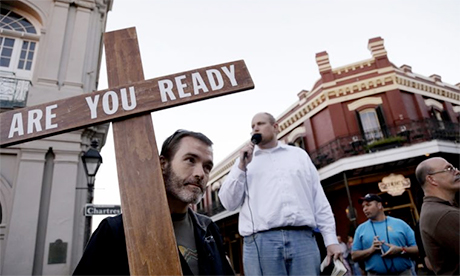Ours is an antinomian age.
It is a time when people are “spiritual but not religious.”
Young people especially are counted among the “nones” who, while believing in God, eschew the doctrines and communal bonds of traditional religion.
It is a time of individualism and a distorted notion of conscience that, in practice, becomes indistinguishable from self-justification.
Ours is an age in which the moral law is seen as an outdated and unreachable ideal or even as an obstacle to self-expression and self-fulfillment.
Five years ago, Pope Francis gave an interview to America and other Jesuit journals in which he warned about the inadequacies of a church that too easily becomes “obsessed” with certain moral teachings, confusing the fundamentals of the faith for a “disjointed multitude of doctrines to be imposed insistently.”
If the church does not correct this imbalance, the pope warned, “the moral edifice of the church is likely to fall like a house of cards.”
What was needed instead, Pope Francis said, was to re-emphasize the church’s missionary character.
Evangelisation must be more about helping people to fall in love than about convincing them to fall in line. “The most important thing,” Pope Francis said, “is the first proclamation: Jesus Christ has saved you.”
He continued, “It is from this proposition that the moral consequences then flow.”
He wants to shake the church—to shake us—out of complacency and a tendency to moral abstraction.
The pope’s oft-repeated advice—hagan lío, or “make a mess”—should not be dismissed as a quirk of Francis’ style.
It is a deliberate evangelical strategy, and it is, perhaps, a strategy perfectly tailored to our times.
But this strategy of holy disruption is also risky, especially in this secular era.
The pope routinely denounces modern-day Pharisees and doctors of the law; he warns of gnosticism and neo-pelagianism.
And rightly so: These are obstacles to the Gospel.
But where is there a problem of people overly committed to following the church’s moral teachings on…well, on anything?
Doesn’t it seem likely, or at least possible, that the human wreckage that requires a church as field hospital comes precisely from a culture of indifference toward the church’s moral teachings?
Nowhere is this more evident than in the sexual abuse scandals that once again are rocking the church.
The greatest obstacle to the church’s proclamation of the Gospel today comes from the scandal of those—including cardinals, bishops and priests—who have excused in their own minds the most repulsive and criminal violations of the church’s moral law.
Immorality destroys the Gospel; sin—yours and mine—is precisely what puts people in the field hospital to begin with.
Simply restating moral doctrine is obviously not the solution—as Pope Francis has pointed out, as history shows and as many of his crankier critics would do well to remember—but the church’s moral doctrines are liberating and precious.
To treat them as secondary to the Gospel plays precisely into the antinomian temptation so prevalent in our time. Continue reading
- Image: Christian Today
- Stephen P. White is a fellow in Catholic studies at the Ethics and Public Policy Center in Washington, D.C.
